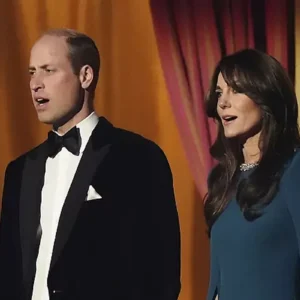People think there is too much pressure on the Princess of Wales to return to her royal duties following her battle with cancer, the poll for The Mail on Sunday found.
Nearly half (47 per cent) said they backed a more gradual return to public life for the Princess, while just 29 per cent thought it was ‘reasonable’ to expect her to return to normal duties.
The Princess, who turns 43 this week, has undertaken only a handful of engagements since announcing the end to her chemotherapy in September including visiting victims including visiting victims of the Southport stabbing attack and hosting her annual Christmas carol concert.
But palace sources say there will be no ‘huge reset’ in 2025 and that Kate will continue a slow return to work, making sure to balance her health with her personal and public duties.
Royal biographer Hugo Vickers said: ‘The public are genuinely very fond of Catherine and admire her in a huge way. There is an understanding that she must not be put under any pressure and will do what she can. Alongside public duties as our future Queen, her priority is as mother to her young family. We all just want her to get well.’
The public are more evenly divided on the return to work for King Charles, who is still undergoing cancer treatment.
Forty per cent think there is too much pressure for him to return to public duties, but 36 per cent think the opposite.
Charles had an operation in January last year for an enlarged prostate, and doctors announced in February that he had been diagnosed with a form of cancer. He returned to public duties last April.
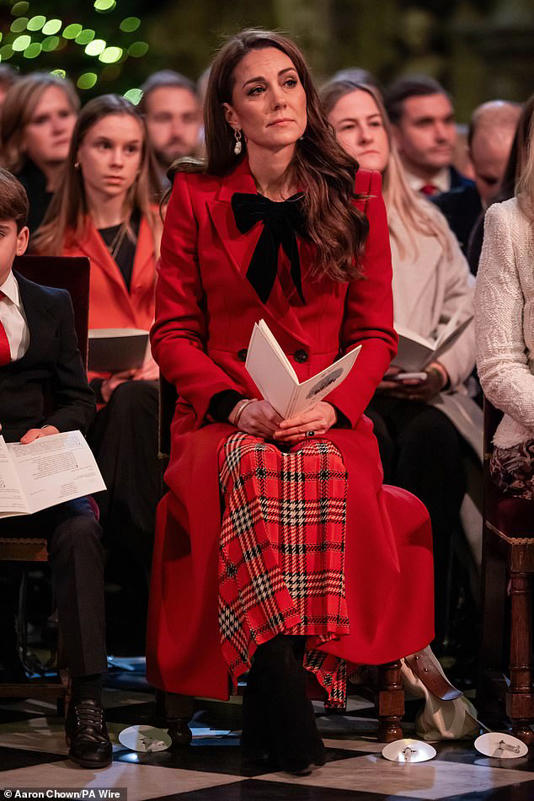
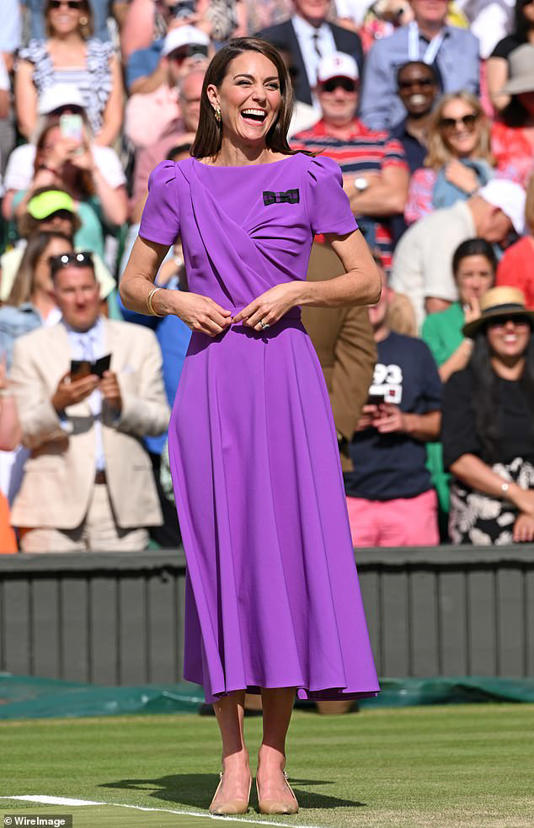
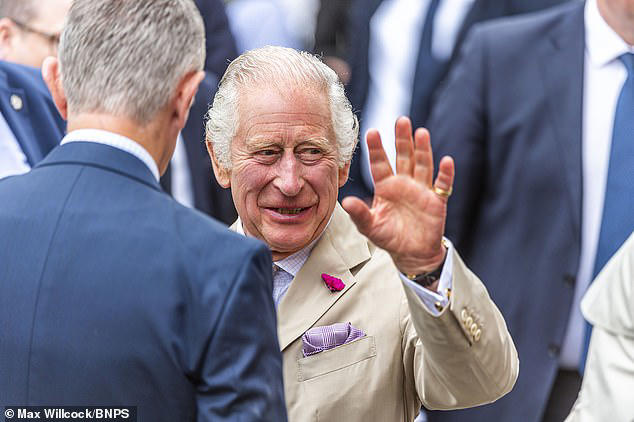
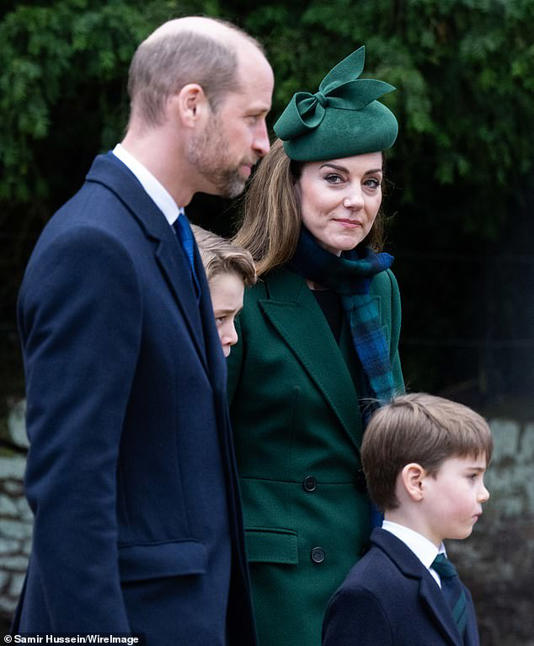
While his schedule has been adapted, the King has undertaken a significant number of engagements, including a tour of Australia and Samoa.
Joe Little, managing editor of Majesty magazine, said: ‘I think the King would support the 36 per cent who are in favour of him continuing to work as he is keen to get a move on.
We are told he will go on tour this year and have a relatively normal programme. However I expect others, like Queen Camilla, would prefer he took his foot off the accelerator.’
The Deltapoll survey also brings good news for Prince Harry. Some 45 per cent would support Charles welcoming his son back into the Royal Family if President-elect Donald Trump makes good on his threat to deport him.
Under a quarter (24 per cent) back the idea of deportation and 30 per cent oppose the Duke of Sussex being welcomed back into the fold.
Prince William, the Princess of Wales and the Princess Royal are the most popular members of the Royal Family, scoring 75 per cent, 77 per cent and 73 per cent respectively.
Prince Andrew should be banned from all future royal Christmases, according to nearly half of Britons.
Forty-two per cent of those polled for The Mail on Sunday said they support him being barred, with only 26 per cent opposing the idea.
More than a third would also prefer the Duke of York to be exiled.
Last month, Andrew pulled out of the traditional Sandringham Christmas gathering after he was linked to an alleged Chinese spy.
Two thirds of Britons surveyed also want the Duke to declare the source of his money that allows him to continue living in Royal Lodge, Windsor. It was revealed in November that he had secured secret funding, likely to be in the millions, to bankroll his stay there.
Prince Andrew was polled as the most unpopular member of the Royal Family, with 75 per cent of Britons saying they have a negative view of him.
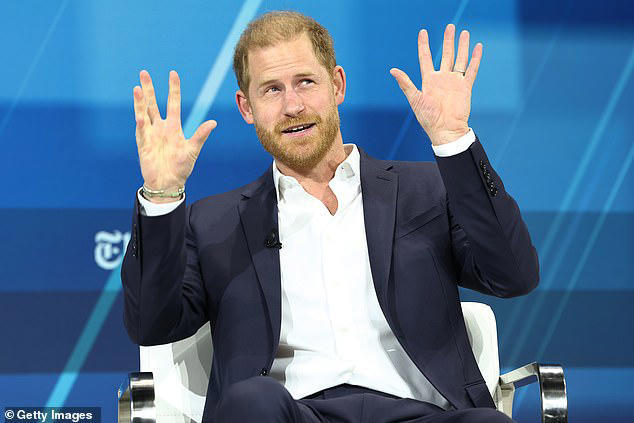
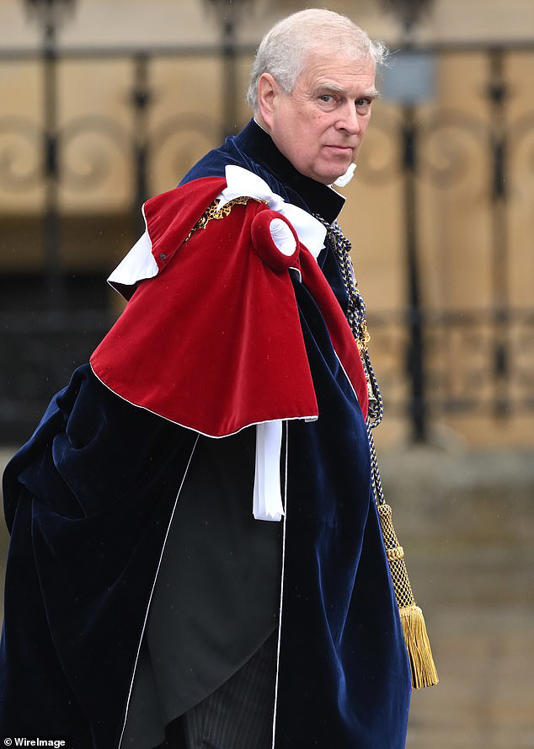
The Duchess of Sussex was the second most unpopular, with 58 per cent having negative views of her.
Nearly two thirds of respondents supported the removal of Prince Andrew and his children from the line of succession. And those surveyed backed the removal of Prince Harry and his children from the line of succession by a margin of nearly two to one.
Joe Twyman of Deltapoll, which carried out the research, said: ‘How Prince Andrew is viewed by the British public continues to be problem for King Charles.
‘While Harry and Meghan, the Duke and Duchess of Sussex, are not viewed positively, Prince Andrew is significantly more unpopular – and his continued presence in public life to any degree is likely to continue to cause difficulties.’




